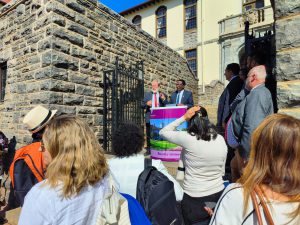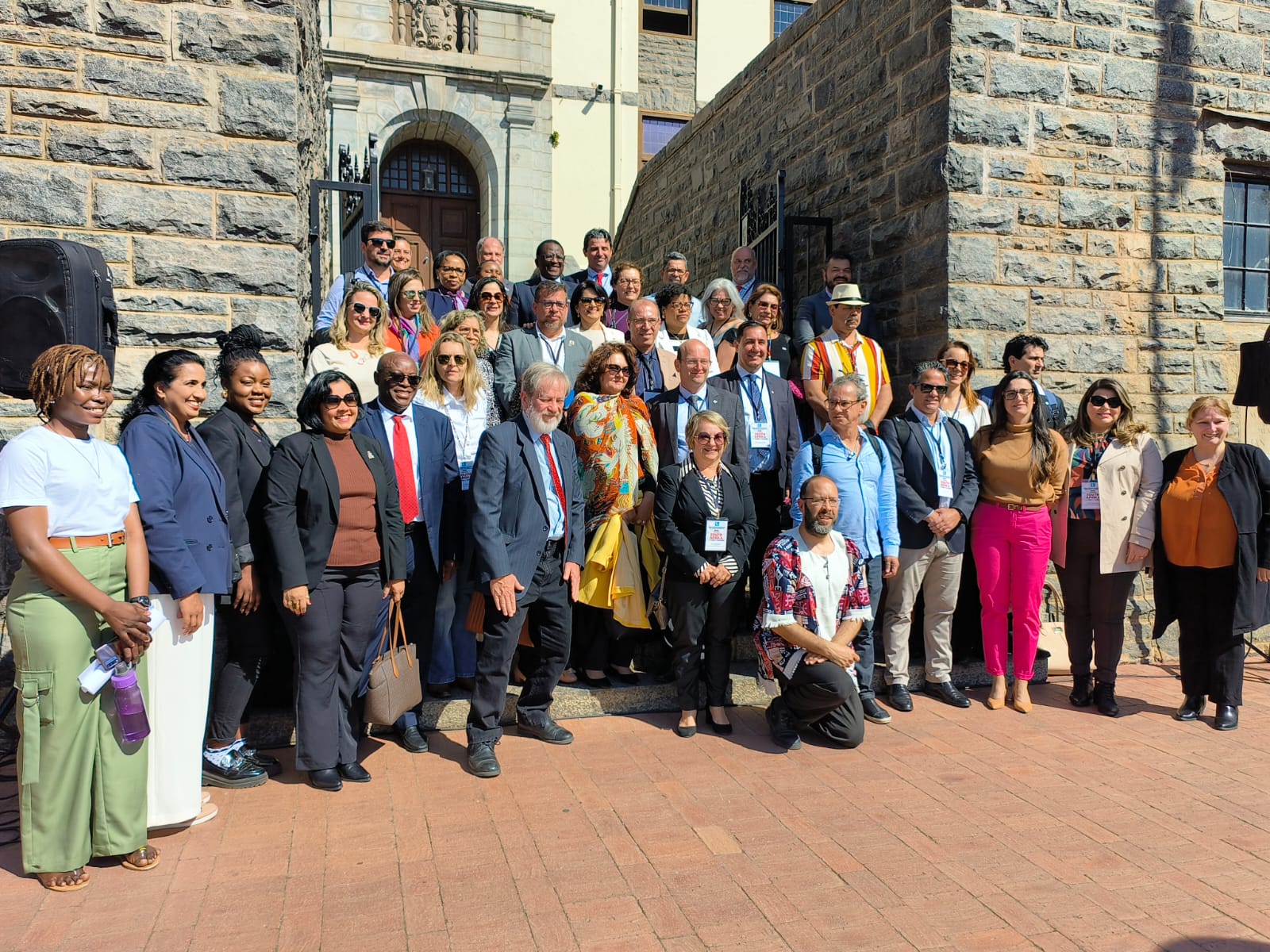By Steven Lang
A group of 45 senior academics from Brazilian Universities visited Rhodes University in Makhanda. The group included rectors, vice-chancellors, presidents and deans of 22 universities belonging to the Brazilian Association of Rectors of Provincial and Municipal Universities (ABRUEM).
The Brazilians were in South Africa to attend the Global Leadership Summit hosted by the International Education Association of South Africa (IEASA) in Durban. They also visited universities in KwaZulu Natal, the Western Cape and Gqeberha.
ABRUEM, one of the most important higher education organisations in Latin America, is committed to internationalisation, and it was on this basis that the mission was extended to South Africa.
The delegation of academics began their visit to Makhanda with a brief stop at the Settlers Monument, where they learnt briefly about the history of the monument and the town. They also admired the view from Fort Selwyn before they moved on to the university.
Welcoming the delegation to Rhodes University on the steps of the administration building, Vice Chancellor Prof. Sizwe Mabizela pointed out that South Africa and Brazil share many things in common, “Both are middle-income countries. Both are very unequal countries. Both have very diverse populations. Both Brazilians and South Africans value democracy, and there have been moments in both countries where this was under threat, and both have lived through very challenging political times”.
He also said that both countries are members of BRICS (Brazil, Russia, India, China and South Africa), an international organisation that held its most recent summit meeting in Johannesburg in August.
Mabizela noted that while there are significant differences between the two higher education systems, “We are both public good entities operating in contexts of gross inequality and poverty, with much to learn from each other”.
A quick bus tour of the campus took the delegation to the Stephen Bantu Biko students’ building, where Mabizela described the main components of the university, several faculty Deans outlined their particular research areas, and Dr. Rene Oosthuizen made a presentation on Rhodes University’s community engagement efforts.
ABRUEM then showed a video giving an overview of tertiary education in Brazil, and the President of the Organisation, Odilon Máximo de Morais from the Universidade Estadual de Alagoas, spoke about the prospects of academic collaboration between the two countries.
While there was much talk about how Rhodes could work with Brazilian universities, Orla Quinlan, Director of Internationalisation, cautioned that “you can’t expect a marriage on the first date”.
Both Rhodes academics and the visitors from Brazil applauded heartily when the Deputy Dean of Humanities, Professor Patrick Mwepu, said that he was going to propose the establishment of a BRICS institute at Rhodes.



